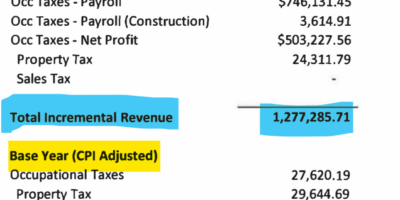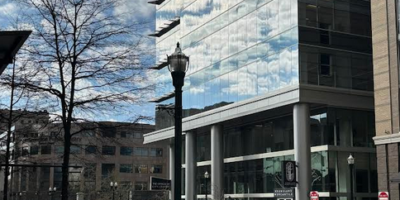By Danny Mayer
“Organized greed always defeats disorganized democracy.”
—Matt Taibbi
Meeting 1
On Monday October 25, Bill Shelton, whom the Lexington Herald-Leader described as a “former Michigan educator who is now at the Association of Governing Boards of Universities and Colleges,” informed the University of Kentucky Board of Regents that they should be prepared to pay more for their next president. Less than two months earlier, as a retirement gift to outgoing UK CEO/President Lee Todd, the board had increased his presidential salary at the university nearly $200,000, to an annual salary of $511,000. The regents even backdated payments one year.
“You can look for seven plus at this level,” the paper reported Shelton saying. “We now have presidents hitting close to $1 million.” According to Britt Brockman, the Board hadn’t “even broached the subject of compensation” yet.
Meeting 2
Two weeks later, the Saturday November 13 Herald-Leader reported that Greenwood/Asher would be awarded the contract for conducting the search for UK’s next CEO/President. Greenwood/Asher had been hired by UK a decade earlier for the last presidential search, and they had recommended the business man Lee Todd. Greenwood/Asher are described in pitch perfect corporate speak by the Herald Leader thusly: “Greenwood/Asher has been involved in more than 1,000 successful executive searches, according to UK.” Who doesn’t love successful searches? They’re so vaguely satisfying.
At the Board Meeting, the Trustees created a rough draft list of desired qualities for the job advertisement. “[A] record of outstanding scholarly experience and achievement in education,” “superior leadership skills in management,” a “commitment to a diverse faculty and student body,” and “a commitment to the critical role of public, land-grant universities in advancement of Kentucky, the nation and the world” appeared on the list. Also mentioned: to “articulate the university’s mission and goals” and to “communicate effectively” with diverse groups. Todd insider Everette McCorvey called for leadership skills to be given preference. There was no mention of staff, of local labor forces or even of a place called Lexington, existing as it does somewhere beneath (but in) the state.
It’s at this meeting that the paper records the first public mention of confidentiality. The search committee had gone behind closed doors and chosen search firm Greenwood/Asher from among an unspecified number of search firms. We do know that it took the Board less than one hour to choose the search firm that would conduct the search for the next CEO/President of the University of Kentucky.
Also, the Leader reported, no decision had been made as of yet regarding the “possibility of holding forums around Kentucky to seek citizen input.”
Meeting 3
Though only two days elapsed between meetings, much changed at the Board’s Sunday meeting on November 14. The draft list of desired qualities has been narrowed to five traits: political astuteness; proven management skills; strong communication skills; creative, innovative leadership; and ability to be a strategic visionary. The corporate language creep has officially begun.
Of the original seven or so desirable traits brainstormed 48 hours earlier, a “record of outstanding scholarly experience and achievement in education” and a “commitment to a diverse faculty and student body” are the only two traits revised out, eliminated. Excised. In their place sits “ability to be a strategic visionary,” a great corporate catchword but not so descriptive, slipped in between drafts 1 and 2. Looks like McCorvey got his request.
Also at the Sunday meeting, Greenwood (of Greenwood/Asher) confirms Bill Shelton’s original assessment that the UK presidential salary must be raised. The median salary for university presidents is reported to be $436,111, and Lee Todd currently makes $511,046. Nevertheless, Greenwood cites Ohio State President Gordon Gee’s $1.5 million salary—the highest of any university president—as an example of what UK is competing against. The paper reports no other salaries.
The big story of the day, however, is that the search for the next president of the flagship university at the University of Kentucky will take place nearly entirely out of public view, behind closed doors. Or at least that’s the hope. Greenwood (of Greenwood/Asher) informed the board that public scrutiny would be bad for the search. Here’s how the Leader reported it. Note the passive verb, the sense of inevitability and lack of agency. This is corporate speak, passivity at its finest, all in all a wonderful lead sentence under the circumstances:
“The University of Kentucky Board of Trustees was told Sunday by its presidential search consultants that there’s one particular consideration driving many searches these days: the privacy of the candidates.” As a way to defer to this need for privacy, Greenwood envisioned a scenario where only one presidential candidate would be forwarded to the Board. She cited the University of Minnesota, a Top 20 university whose previous president (now no longer with the school) set his college’s sights on Minnesota being a Top 5 globally ranked school, as one example of a successful college search ending happily with only one candidate forwarded to the university.
How would the candidate conduct an interview? Greenwood was asked. Interviews are unimportant, came the response. Any potential candidates can be “interviewed privately or off-site to avoid community speculation and media scrutiny.” Candidates shouldn’t be hassled like that by their public.
Corporate creep
The Herald Leader has already laudably come out against the proposed privately run candidate search. But there’s more to this than simply asking the state U to come clean and open.
The policies that Lee Todd, who was hired at UK because of his business and not his academic acumen, enshrined at UK have largely been policies that have helped enable a certain corporatization of the university. Though it’s taken far too long, Todd’s stepping down has opened the Top 20 rationale to scrutiny.
Thus far, however, the story about the Top 20 Plan (and Lee Todd) has fallen along the lines of “good plan, good man, economy tanked, entrepreneurialism is great, the Kentucky legislature sucks balls, and Kentuckians are just stupid enough. Tough job.”
These may seem like a dynamic range of views, but taken together they also provide a misleading narrative of what’s gone wrong with the college. All views of what went wrong seem to blame bodies of people—the legislature, for example—while failing to scrutinize the policies of the one person nearby for whom we have access and to whom we can put a face to policies. Todd’s policies may be beneficial, or they may not, but they haven’t really been debated, which is strange considering how over-riding “Top 20” has been to the raison d’etre of the university throughout the past 10 years.
The Board of Trustees, who gave Todd straight A’s all 9 years he was in college, certainly liked the business models Todd worked under. From where things stand now, they will pick from a potential candidate pool of one (1) candidate. That lone candidate will be chosen by the same search firm that hired the last business-world candidate. We can guess that, left to their own devices, whichever candidate gets chosen at UK will hold many of the same business values and practices as Todd (and the Board and Greenwood/Asher). He or she may look different, younger, fresher, more multicultural. But the CEO mentality will be a prime reason for whomever’s selection.
Thus far, most public comment has proceeded from the assumption that the Top 20 Business Plan was a fine document, though ultimately doomed to fate of those education-hating scumbags in Frankfort and a ‘whoops-didn’t-see-that-comin’ bad turn in the economy. Such sentiments, of course, leave the more central question unasked: was Todd’s business plan flawed? Are business plans for things like “Top 20” universities inherently flawed? Are they destructive? What the fuck does Top 20 actually mean?
These things haven’t really been asked much, so we’re going to start asking. We’ll look at some Top 20 claims, national trends, workforce divisions, building sprees and many other things. The assumption by most is that universities are hotbeds of liberal activity. My experience has always been the opposite: that while it’s got liberal spectacles for us all to consume, at its core the university of today is a thoroughly conservative shill for (state and federally supported) private business interests.
But more on that later.
First up: ACT Scores and low rankings: are students to blame?
Preview: Below is a text copy of a September 22 email sent to Lee Todd. I attempted to contact him again on September 27 and October 1. I gave up hoping for a response. We’ll trudge on ahead and analyze ACT scores in a context of Top 20 anyway. Who knows–he may even respond to my questions this week. One thing’s for sure, after 5 attempts, I’m done trying.
Lee Todd:
I’m re-submitting my September 10 and September 17 emails to you. I’d appreciate a response
September 10 correspondence:
At the September 8 news conference announcing your retirement, you stated that ACT scores played a major part in UK’s low undergraduate ranking. I believe you suggested these low scores factored into both the US News rankings and UK’s own Top 20 rankings.
I’m curious to know how large a part ACT scores play in both rankings? Do they comprise, say, 70% of the rankings? 50%? I’m also curious to know what changed regarding Kentuckians’ achievement on ACT scores between the years 2005 and 2010. I’ve chosen these dates as they correspond to your nationally recognized Top 20 Business Plan and your statement regarding low Kentucky ACT scores at your press conference. Was the ACT score criteria unknown to you at the time of your Business Plan in 2005?
September 17 correspondence:
In your state of the union speech yesterday, you claimed that other schools were raiding Texas and California for students to help their rankings. You also made this same claim in your retirement press conference. Can you provide me with evidence to corroborate your claims? What schools are doing this? Are they Top 20 Research University schools?
Thank you for your time,
Danny Mayer
Editor, North of Center




Shea
Brilliant and spot on.
Koolaid drinking east coast wannabe
lemmings who would rather play the PC corporate game than just be plain smart.
Tell me again what did Lee actually accomplish?
Danny
Interesting question, Shea. Here was our write-up of Todd’s career:
https://noclexington.com/?p=1729